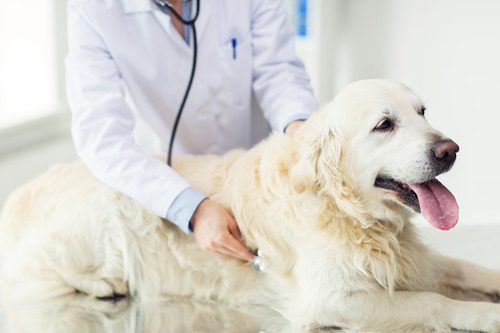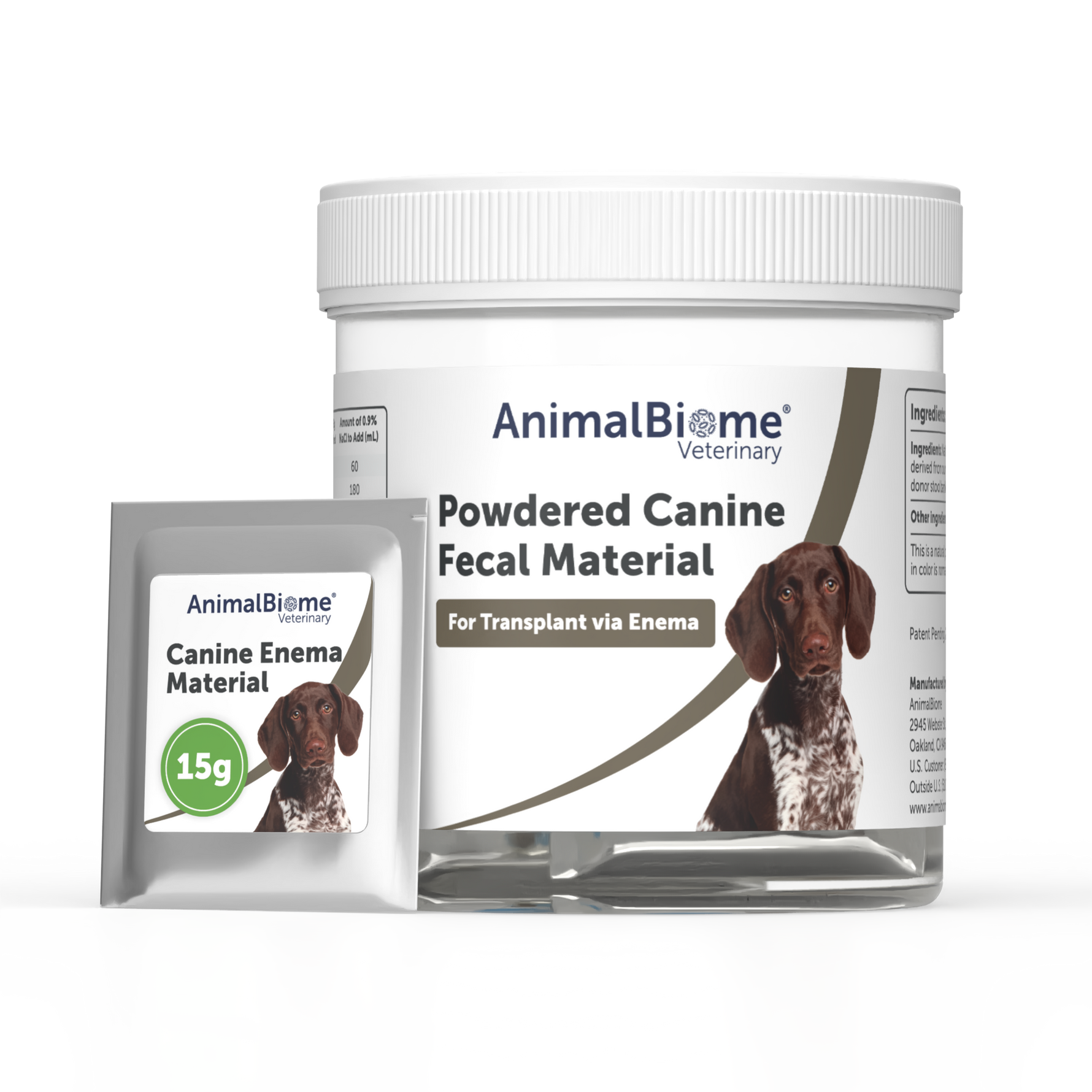If your dog has diarrhea, you’re probably worried and wondering what to do next. It’s normal to feel unsure about when a simple upset stomach turns into a serious problem.
You want to keep your furry friend healthy and comfortable, but how do you know when it’s time to see the vet? This guide will help you spot the signs that mean your dog needs professional care. Keep reading to learn exactly when to take action and protect your pet’s well-being.

Credit: www.instagram.com
Common Causes Of Dog Diarrhea
Diarrhea in dogs can have many causes. Knowing what triggers it helps in deciding when to see a vet. Some causes are simple and clear, while others need medical attention. Recognizing common reasons can protect your dog’s health and comfort.
Dietary Changes
Sudden changes in your dog’s diet often cause diarrhea. Introducing new food too quickly upsets their stomach. Eating spoiled food or garbage also leads to loose stools. Always switch food gradually over several days.
Infections And Parasites
Bacterial, viral, or parasitic infections can cause diarrhea. Parasites like worms irritate the intestines. Infections may come from contaminated water or other animals. These require prompt treatment to avoid serious illness.
Food Allergies
Some dogs develop allergies to certain foods. Common allergens include beef, dairy, and wheat. Allergies cause inflammation in the digestive tract. This often results in diarrhea along with itching or skin problems.
Stress And Anxiety
Stress affects dogs just like people. Changes in routine, travel, or loud noises can trigger diarrhea. Anxiety causes the gut to react quickly. Managing stress helps prevent repeated digestive issues.
Duration And Severity To Watch
Knowing how long diarrhea lasts and how severe it is helps decide if a vet visit is needed. Some diarrhea clears up quickly without treatment. Others may signal a bigger problem requiring medical care. Watch your dog closely.
Check how often your dog has diarrhea and how it looks. Also, note any changes in behavior. These details give clues about the cause and urgency.
Acute Vs Chronic Diarrhea
Acute diarrhea starts suddenly and lasts a short time. It can be caused by eating something bad or a mild infection. Usually, it stops within a day or two.
Chronic diarrhea lasts more than two weeks. This type often points to a serious health issue. Conditions like allergies, parasites, or digestive diseases may cause it. Chronic diarrhea needs prompt veterinary care.
Frequency And Consistency
Frequent diarrhea means your dog has loose stools many times a day. This can cause dehydration and weakness fast. Watch if your dog cannot hold stools or has accidents.
Consistency matters. Watery diarrhea is more serious than soft but formed stools. Watery stools mean your dog loses fluids quickly. Soft stools with some shape are less urgent.
Presence Of Blood Or Mucus
Blood in diarrhea is a warning sign. Bright red blood often shows bleeding in the lower intestines or anus. Dark, tarry blood suggests bleeding higher in the gut.
Mucus in stools signals inflammation or infection in the digestive tract. Both blood and mucus require a vet exam. They can indicate serious infections or injury.
Behavioral And Physical Symptoms
Recognizing behavioral and physical symptoms in your dog is vital when dealing with diarrhea. These signs often indicate that your pet needs veterinary care. Monitoring changes in energy, appetite, and hydration can help catch serious problems early.
Some symptoms may seem mild but can quickly worsen. Pay close attention to any unusual behaviors or physical changes. Acting fast can prevent complications and improve your dog’s recovery.
Lethargy And Weakness
Lethargy means your dog is unusually tired or inactive. Weakness shows as difficulty standing or walking. Both signs suggest your dog is not feeling well. These symptoms with diarrhea may mean infection or dehydration. Immediate vet care is important to avoid serious health risks.
Vomiting
Vomiting alongside diarrhea is a strong warning sign. It can cause dehydration and worsen illness. Vomiting prevents your dog from keeping food or water down. This makes recovery harder and needs prompt veterinary attention. Watch for repeated or severe vomiting episodes.
Loss Of Appetite
Dogs losing interest in food often have an underlying health issue. Loss of appetite with diarrhea can indicate infection or digestive problems. Prolonged refusal to eat weakens your dog and delays healing. Consult a vet if your dog stops eating for more than 24 hours.
Dehydration Signs
Dehydration is dangerous and common with diarrhea. Signs include dry gums, sunken eyes, and slow skin recovery. Your dog may also pant heavily or have a weak pulse. Dehydration needs urgent veterinary care to restore fluids and prevent shock.

Credit: millsmarietta.com
High-risk Groups Needing Prompt Care
Some dogs need faster care when they have diarrhea. Certain groups face higher risks from dehydration and infection. Recognizing these groups helps protect your dog’s health and comfort.
Puppies And Senior Dogs
Puppies have weak immune systems. Their bodies lose fluids quickly. Diarrhea can cause serious dehydration fast. Senior dogs may have other health issues. Their organs do not work as well. They need quick medical attention to avoid complications.
Dogs With Pre-existing Conditions
Dogs with conditions like diabetes or kidney disease are vulnerable. These illnesses weaken their ability to recover. Diarrhea may worsen their health rapidly. Veterinary care is essential to manage both problems safely.
Immunocompromised Pets
Pets with weakened immune systems struggle to fight infections. This group includes dogs on medications like steroids or chemotherapy. Diarrhea might signal a dangerous infection. Prompt vet visits can prevent serious illness or hospitalization.
Emergency Situations
Some diarrhea cases need urgent vet care. Recognizing emergency signs can save your dog’s life. Watch closely for severe symptoms that need quick action. Do not wait if your dog shows any of these signs.
Severe Dehydration
Diarrhea can cause fast fluid loss. Dry gums, sunken eyes, and weak pulse show dehydration. Your dog may also be very tired or dizzy. This condition needs immediate vet treatment to avoid serious harm.
Bloody Diarrhea
Blood in stool signals a serious problem. It may come from infections, parasites, or injury. Bright red or dark blood both require urgent vet care. Do not ignore bloody diarrhea, as it can worsen quickly.
Persistent Vomiting
Vomiting with diarrhea is dangerous. It causes fast dehydration and nutrient loss. If your dog vomits many times in a few hours, call the vet. Persistent vomiting weakens your dog and can lead to hospital care.
Abdominal Pain Or Bloating
Your dog may show pain by whining or guarding the belly. A swollen or hard abdomen is a serious sign. Bloating can block the intestines or cause twisting. Both need emergency veterinary help to prevent life-threatening damage.
Preparing For The Vet Visit
Preparing for a vet visit can make a big difference in how quickly your dog gets the right treatment for diarrhea. The more detailed information you bring, the easier it is for the vet to pinpoint the problem. You want to be ready with everything that might help your vet understand your dog’s condition better.
Collecting Stool Samples
Bring a fresh stool sample from your dog to the vet. It’s best to collect it in a clean container or a sealed plastic bag. A recent sample shows what’s happening inside your dog’s digestive system and helps the vet identify infections or parasites.
Try to gather the sample as close to the appointment time as possible. If your dog has diarrhea multiple times, pick the most recent one that looks abnormal. This small step can save time and avoid guesswork during the visit.
Noting Dietary And Behavior Changes
Think about any recent changes in your dog’s diet. Did you switch their food brand or add new treats? Have they eaten anything unusual or potentially harmful during walks?
Also, observe changes in your dog’s behavior. Are they more tired than usual? Have they lost interest in playing or eating? These clues can tell the vet a lot about the root cause of the diarrhea.
Documenting Symptoms Timeline
Write down when the diarrhea started and how it has changed over time. Has it gotten worse or better? Are there any other symptoms like vomiting, lethargy, or fever?
Having a clear timeline helps the vet understand how urgent the situation is and which tests to run first. It also shows patterns that might link to specific causes like allergies or infections.

Credit: www.instagram.com
Frequently Asked Questions
When Should I Take My Dog To The Vet For Diarrhea?
Take your dog to the vet if diarrhea lasts over 24 hours, contains blood, or is accompanied by vomiting or lethargy. Immediate care is needed for puppies, elderly dogs, or pets with underlying health issues.
How Long Can Mild Diarrhea In Dogs Last?
Mild diarrhea in dogs usually lasts 1 to 2 days. If it persists beyond this or worsens, consult your vet to rule out serious problems.
Can Dehydration From Diarrhea Be Dangerous For Dogs?
Yes, dehydration from diarrhea is dangerous. It can lead to weakness, organ failure, and even death. Seek veterinary care if your dog shows signs like dry gums or lethargy.
What Symptoms With Diarrhea Require Urgent Veterinary Attention?
Urgent care is needed if your dog has bloody stool, severe vomiting, high fever, or is very weak. These symptoms may indicate serious infections or illnesses.
Conclusion
Diarrhea in dogs can be normal or a sign of illness. Watch for signs like weakness, blood, or lasting more than two days. Quick action can prevent serious problems. Always trust your gut feeling about your dog’s health. A vet visit helps find the cause and get the right treatment.
Keeping your dog healthy starts with knowing when to seek help. Stay alert and care for your furry friend.






